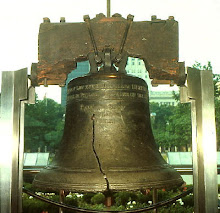
Atlanta Gay Bar Raids are a Gross Injustice
By Norm Kent
It was in 1991 that the Broward Sheriff’s Office, under the supervision of then Sheriff, Nick Navarro, raided the most popular gay bar in South Florida, the Copa, on a busy Friday night.
It was a remarkable incident. Scores of cops in swat teams enter a huge dance bar with hundreds of patrons targeting a half-dozen persons who they had previously done undercover drug deals with. There was no guarantee the named suspects were even going to be there.
Notorious for publicity, the Sheriff personally arrived along with a helicopter, his wife, and television crews. As SWAT type deputies swarmed through the bar, they ordered all the patrons, at gunpoint, up against the wall, lied them on the floor, and randomly searched them for drugs while publishing denigrating epithets.
The cops became thugs and the patrons became victims. Innocent men and women were unlawfully detained, unjustifiably restrained, and purposely humiliated. Twenty years ago, scores of those customers were still in the closet. They were also marched out of the bar with their hands held over their head to waiting TV cameras which filmed and aired their faces.
The cruel and unconstitutional conduct of law enforcement would not stand. The courageous operator of the bar, John Castelli, now a renowned realtor, directed me to file suit immediately. The entire gay community was justifiably outraged. The suit would not have been settled and the case would have gone on for years but for the public denying Sheriff Navarro re-election in the next year’s primary.
A new sheriff was elected, Democrat Ron Cochran. He was troubled by the conduct of his department that evening, and instructed his attorneys to settle the case with me. In public ceremonies which were covered by the media, we negotiated a fair and honorable agreement which served not the pecuniary needs of any one party but the interests of the community. BSO presented Center 1, then our county’s largest and oldest AIDS agency, with a check for $25,000.
The memory of days past in South Florida is a calling to today’s gay leadership in Atlanta. The legal issues raised by their gay bar raids are identical. The conduct of law enforcement at The Eagle was reprehensible; overkill. Instead of quietly coming into the bar at the end of the night and arresting targeted dancers who had committed second degree misdemeanor lewd act violations, they busted inside in the middle of the evening.
Police shoved innocent patrons into the ground, on the floor, restraining and detaining them illegally and unconscionably. They employed SWAT teams and undercover drug officers who of course are going to say their conduct was essential for their own safety. Bullshit. If their conduct had been sensible and coordinated, the arrests would have been timed and responsible. Atlanta cops chose to use a display of physical force, armed with guns and verbal epithets. But they should pay through the nose for their illegal methods and inappropriate messages.
Not only could have cops cited the bar under ABT laws, they could have more prudently gone into the dressing rooms and segregated out dancers who violated laws without humiliating patrons who did not. Think about it, if the only eight persons arrested were bar employees for permit violations, it also could have been done at the end of the evening after patrons left and the club was closing.,
Twenty years ago in South Florida, the sheriff said he had to raid the Copa because it was ‘awash with drugs.’ But the raid found less than five persons in the bar with narcotics. In Atlanta, NO patrons were found to have any contraband. So the cops were just plain wrong, and their police chief, Mr. Pennington, should be more than apologetic. They were so reckless as not to even utilize their designated police officer who operates as the liaison to the gay community. Simply shameful.
The time to sue the Atlanta police is now. The time to rally the community is immediately. Similar carelessness by the Texas Liquor Board in a gay bar raid a few months ago left a patron needlessly injured. The authorities just fired three of the agents involved in the fiasco. That is what could have happened in Atlanta. That it did not was more luck than planning. There was never an excuse to put innocent patrons at risk. It was the height of recklessness to do so. Atlanta cops must now pay the price for their misconduct.
By Norm Kent
It was in 1991 that the Broward Sheriff’s Office, under the supervision of then Sheriff, Nick Navarro, raided the most popular gay bar in South Florida, the Copa, on a busy Friday night.
It was a remarkable incident. Scores of cops in swat teams enter a huge dance bar with hundreds of patrons targeting a half-dozen persons who they had previously done undercover drug deals with. There was no guarantee the named suspects were even going to be there.
Notorious for publicity, the Sheriff personally arrived along with a helicopter, his wife, and television crews. As SWAT type deputies swarmed through the bar, they ordered all the patrons, at gunpoint, up against the wall, lied them on the floor, and randomly searched them for drugs while publishing denigrating epithets.
The cops became thugs and the patrons became victims. Innocent men and women were unlawfully detained, unjustifiably restrained, and purposely humiliated. Twenty years ago, scores of those customers were still in the closet. They were also marched out of the bar with their hands held over their head to waiting TV cameras which filmed and aired their faces.
The cruel and unconstitutional conduct of law enforcement would not stand. The courageous operator of the bar, John Castelli, now a renowned realtor, directed me to file suit immediately. The entire gay community was justifiably outraged. The suit would not have been settled and the case would have gone on for years but for the public denying Sheriff Navarro re-election in the next year’s primary.
A new sheriff was elected, Democrat Ron Cochran. He was troubled by the conduct of his department that evening, and instructed his attorneys to settle the case with me. In public ceremonies which were covered by the media, we negotiated a fair and honorable agreement which served not the pecuniary needs of any one party but the interests of the community. BSO presented Center 1, then our county’s largest and oldest AIDS agency, with a check for $25,000.
The memory of days past in South Florida is a calling to today’s gay leadership in Atlanta. The legal issues raised by their gay bar raids are identical. The conduct of law enforcement at The Eagle was reprehensible; overkill. Instead of quietly coming into the bar at the end of the night and arresting targeted dancers who had committed second degree misdemeanor lewd act violations, they busted inside in the middle of the evening.
Police shoved innocent patrons into the ground, on the floor, restraining and detaining them illegally and unconscionably. They employed SWAT teams and undercover drug officers who of course are going to say their conduct was essential for their own safety. Bullshit. If their conduct had been sensible and coordinated, the arrests would have been timed and responsible. Atlanta cops chose to use a display of physical force, armed with guns and verbal epithets. But they should pay through the nose for their illegal methods and inappropriate messages.
Not only could have cops cited the bar under ABT laws, they could have more prudently gone into the dressing rooms and segregated out dancers who violated laws without humiliating patrons who did not. Think about it, if the only eight persons arrested were bar employees for permit violations, it also could have been done at the end of the evening after patrons left and the club was closing.,
Twenty years ago in South Florida, the sheriff said he had to raid the Copa because it was ‘awash with drugs.’ But the raid found less than five persons in the bar with narcotics. In Atlanta, NO patrons were found to have any contraband. So the cops were just plain wrong, and their police chief, Mr. Pennington, should be more than apologetic. They were so reckless as not to even utilize their designated police officer who operates as the liaison to the gay community. Simply shameful.
The time to sue the Atlanta police is now. The time to rally the community is immediately. Similar carelessness by the Texas Liquor Board in a gay bar raid a few months ago left a patron needlessly injured. The authorities just fired three of the agents involved in the fiasco. That is what could have happened in Atlanta. That it did not was more luck than planning. There was never an excuse to put innocent patrons at risk. It was the height of recklessness to do so. Atlanta cops must now pay the price for their misconduct.






















